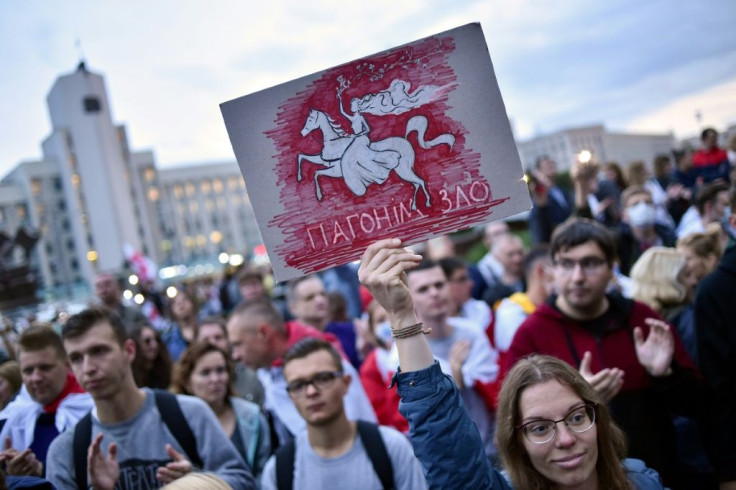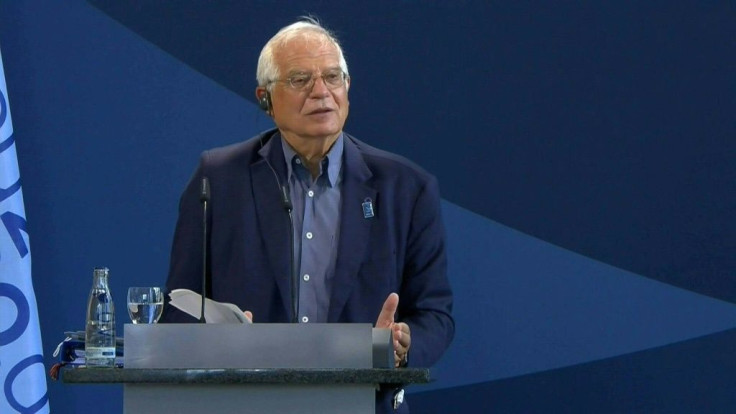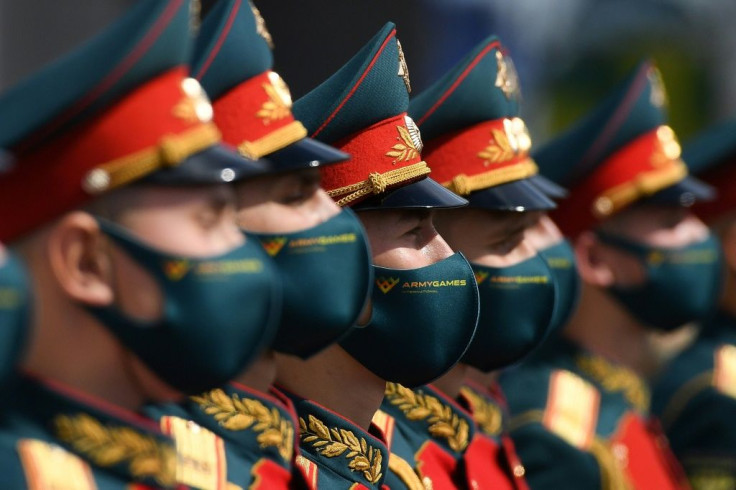EU's Borrell Urges Russia Not To Intervene In Belarus
The EU urged Russia on Friday not to intervene in Belarus after President Vladimir Putin vowed military support for the country's embattled leader.
As EU foreign ministers meeting in Berlin discussed the crisis, President Alexander Lukashenko -- facing unprecedented protests calling for him to quit -- accused the West of trying to topple him in order to weaken Moscow.
Meanwhile neighbouring Ukraine, which saw its own pro-Russian leader toppled after bloody protests in 2014, has offered refuge to Belarusians fleeing a regime crackdown.
The EU has rejected the official results of an August 9 presidential poll in Belarus, which saw Lukashenko re-elected with 80 percent of votes, and is preparing sanctions against his regime for electoral fraud and a violent crackdown on opposition protesters.
Putin on Thursday said he stood ready to send in his military to stabilise Belarus after weeks of huge demonstrations calling for Lukashenko, often dubbed "Europe's last dictator", to quit and hold new elections.

"I have heard many times from Russia the mantra that this is a domestic internal affair for Belarus and they do not want external interference. I suppose it's also valid for themselves," EU foreign affairs high representative Josep Borrell said.
"It is solely for the Belarusian people to determine their own future," he added, urging Russia to "respect the wishes and democratic choices of the Belarusian people."
French President Emmanuel Macron was blunter, telling reporters in Paris that the "worst thing would be Russian intervention" in Belarus.
There "could be no repeat of what happened in Ukraine", Macron added.
After an uprising in 2014, Russia annexed the Ukrainian Black Sea peninsula of Crimea and pro-Moscow forces declared breakaway republics in Ukrainian regions in the east.

Putin on Thursday also called on the Minsk authorities and the opposition to "find a way out" of the crisis peacefully, but the threat of military intervention by the Kremlin has raised the spectre of the crisis on the EU's doorstep taking a darker turn.
Lukashenko, who has ruled the ex-Soviet state for 26 years, renewed his claims that the West wanted to see the back of him for its own ends.
"Belarus is just a springboard to Russia, as always," he said, according to the state news agency Belta.

"Unlike Hitler, who sent his army to Moscow, they are trying to destroy the government in place here and replace it with a new one that will ask another country for military assistance and deploy troops."
EU foreign ministers meeting in Berlin gave their backing to a list of some 20 individuals to be hit with asset freezes and travel bans for their role in rigging the Belarus election or cracking down on demonstrators.
Borrell said the list would encompass "individuals at high political level", but it looks unlikely to include Lukashenko himself, despite calls from some countries for him to be targeted.
The EU is supporting offers by the OSCE to broker a negotiated end to the crisis and hitting Lukashenko in person is seen as counterproductive to these efforts.
The OSCE on Friday described the post-election violence in Belarus as "deeply alarming" and called on Minsk to accept its offer to support dialogue and avoid a "nightmare".
The current OSCE chair, Albanian Prime Minister Edi Rama, said the sooner dialogue started "the better it is for everyone".
Macron said Putin had told him Russia was open to OSCE mediation but Lukashenko was opposed.
"He (Putin) has to make efforts to help us in this direction," the French president added.
Ukrainian Foreign Minister Dmytro Kuleba said Belarusians seeking to enter "Ukraine in an attempt to flee the crisis" would receive entry permits from his country's border guards.
He said they will be given preferential treatment and be exempt from a month-long entry ban over spiking coronavirus cases.
The demonstrations that erupted in Belarus after the election and the violent police crackdown that followed have prompted comparisons with Ukraine's pro-Western uprising in 2014.
Opposition leader Svetlana Tikhanovskaya fled to neighbouring EU country Lithuania after claiming she beat the 65-year-old leader and calling for the protests.
© Copyright AFP 2024. All rights reserved.





















